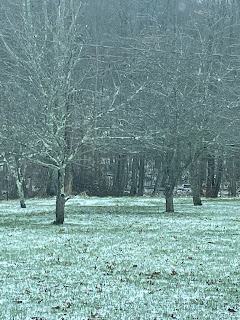Nature is a huge part of my life. Growing up
in a rural area has given me an appreciation of nature
that I am very grateful for (Pictured after this is the outside
of my childhood home). William Wordsworth's poem
"The World Is Too Much With Us" is an example
of Ecopoetry that I enjoyed very much.
"The world is too much with us; late and soon,
Getting and spending, we lay waste our powers;—
Little we see in Nature that is ours;" (1-3)
The first three lines of this sonnet begins this expression that
humans are ruining nature. Ecocentrism is a belief that all things
on and of the Earth are precious and should be treated respectfully.
Wordsworth is expressing his disgust in humanities inability to
see the world this way.
These lines especially resonate with me because of my childhood.
Growing up right outside a state park, I saw the destructions tourist
created. This is one of several reasons I relate to Wordsworth's
sonnet.
"We have given our hearts away, a sordid boon!
This Sea that bares her bosom to the moon;
The winds that will be howling at all hours,
And are up-gathered now like sleeping flowers;
For this, for everything, we are out of tune;
It moves us not. Great God! I’d rather be
A Pagan suckled in a creed outworn;" (4-10)
In this section, Wordsworth is expressing that
he does not understand how humans can
destroy such beautiful things. He gives specific
examples of things he finds beautiful to
connect himself and readers to the loss. The
mistreatment of nature is harmful to all
everyone, so poems like these help expose
readers to their failings, without
scaring them.
The final stanza of this sonnet are
a sort of resolution to Wordsworth's
concerns. He is asking readers to appreciate
and worship the earth as if it is human
as well.





No comments:
Post a Comment